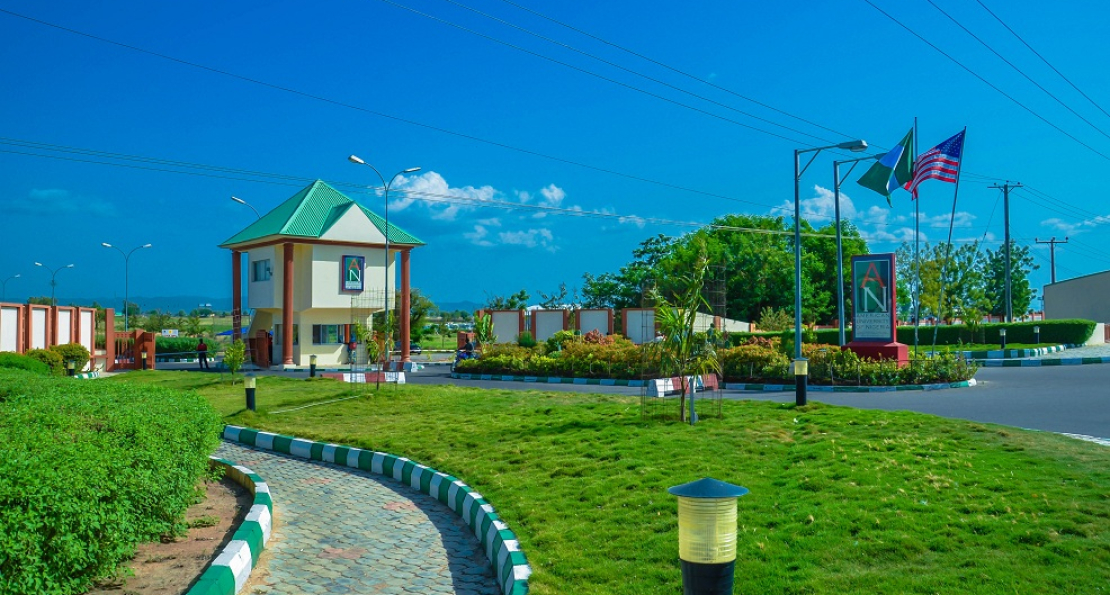Founded in 2004, the American University of Nigeria (AUN) has consistently pursued an ambitious vision to redefine higher education in Africa by merging world-class academics with a profound dedication to societal development. As the institution marks its 20th anniversary, it stands as a preeminent beacon of academic excellence, innovative research, and significant community impact.
Over the past two decades, AUN has risen as a leader in cultivating future leaders, advancing knowledge, and uplifting communities. Its remarkable contributions reflect a commitment to integrating a global perspective with a localized focus, thereby showcasing the transformative potential of education. Embracing an American-style liberal arts educational model, AUN offers an innovative interdisciplinary curriculum designed to foster critical thinking, creativity, and global awareness—an approach that is notably rare in Africa. This unique strategy positions AUN at the forefront of redefining higher education standards on the continent.
The University provides a broad spectrum of academic programs, including Information Technology, Business and Entrepreneurship, Law, Communication for Social Behavioral Change, Nursing, Public Health, Natural and Environmental Sciences, and Engineering, among others. These programs address both global and regional needs, equipping students with a solid foundation to excel across various disciplines while tackling pressing societal challenges such as public health, IT solutions, governance, etc.
AUN's achievements have also been recognized in the 2024 Times Higher Education (THE) Regional University Rankings, where it emerged as the top University in Nigeria and secured the 12th position across Africa. This accomplishment underscores AUN's commitment to academic excellence, community outreach, and environmental sustainability. Dr. DeWayne Frazier, President of AUN, expressed, “Being the top-ranked university in all of Nigeria is a testament to our dear founder’s vision for AUN to be a catalyst for positive change.” Also commenting on the success of the University, its founder, His Excellency Atiku Abubakar, commended the leadership and the trustees of the University from inception to date for their steadfast dedication to excellence and remarked, “As we celebrate our past, we must also recognize that our journey is far from complete. This 20th anniversary is truly just the beginning.”
The AUN Graduate School is an integral part of the institution's academic framework, offering a variety of master's and Ph.D. programs across multiple disciplines, from business to information technology and the sciences. These programs serve as vital hubs for advanced research and foster thought leadership. The strides made by the graduate school in ensuring the timely graduation of Ph.D. and master’s students, especially recently under the leadership of the school's Interim Dean, Prof. Sakah Saidu Mahmud, exemplify AUN’s commitment to academic excellence and student success.
The AUN faculty and students have also made significant contributions to research, addressing critical issues such as public health, sciences, and more. A remarkable recent achievement includes the work of Dr. Malachy Ifeanyi Okeke, an assistant professor and virologist, who coauthored an important study on the biosafety of virus-vectored vaccines. This research, published in Frontiers in Immunology, showcases AUN’s growing influence in tackling global scientific challenges. Also, the recent launch of the Journal System Platform underscores AUN's progressive vision of enhancing community-based research and fostering global academic collaboration. President Dr. Dewayne Frazier articulated the platform’s potential, emphasizing how it will elevate AUN's academic standing and encourage international partnerships that bridge local community solutions with global challenges.
The University’s dedication to nurturing leaders is evident in the accomplishments of its alumni, who are effecting transformation across various industries and continents. Recognized for their entrepreneurial spirit. Many graduates have launched successful ventures in technology, media, and renewable energy, thereby generating jobs and fostering economic growth within their communities. These alumni not only thrive within Nigeria but also make significant contributions globally, pursuing advanced degrees at prestigious universities or excelling in multinational corporations. Their commitment to community-oriented leadership is reflected in their active engagement in initiatives that address societal challenges such as education, healthcare, poverty alleviation, and environmental conservation. This alignment with AUN’s ethos of harmonizing personal success with societal impact is a defining characteristic of its alumni.
As the American University of Nigeria (AUN) embarks on its next chapter, the University's 20th anniversary serves not only as a reflection of its significant achievements but also as a rejuvenation of its mission to foster community development and resilience in northeastern Nigeria. With a focus on addressing the pressing socio-economic and security challenges faced in the region, AUN has positioned itself as an advocate for marginalized groups, notably internally displaced persons (IDPs) and survivors of the Boko Haram crisis, including the Chibok schoolgirls.
Recent initiatives AUN's dedication to weaving education into the fabric of community empowerment through various short-term courses offered by the AUN training institute enhances the employability of participants through essential technology and entrepreneurship skills and also enriches the knowledge of those already working. Furthermore, the innovative Waste to Wealth initiative has been pivotal in teaching communities to recycle waste into valuable products, thereby supporting entrepreneurship while promoting environmental sustainability.
The American University of Nigeria serves as a powerful testament to the transformative effects of education. As it steps into the third decade, the institution remains dedicated to its mission of educating leaders, advancing knowledge, and driving societal change. The journey from its founding in 2004 to its current status as a globally recognized institution demonstrates the profound impact of collective belief in its vision. With a commitment to innovation, sustainability, and societal impact, AUN is well-positioned to continue influencing future generations, ensuring that the transformative seeds planted two decades ago will bear lasting fruit.
Reported by Aishatu Munnauwarah Yahya


